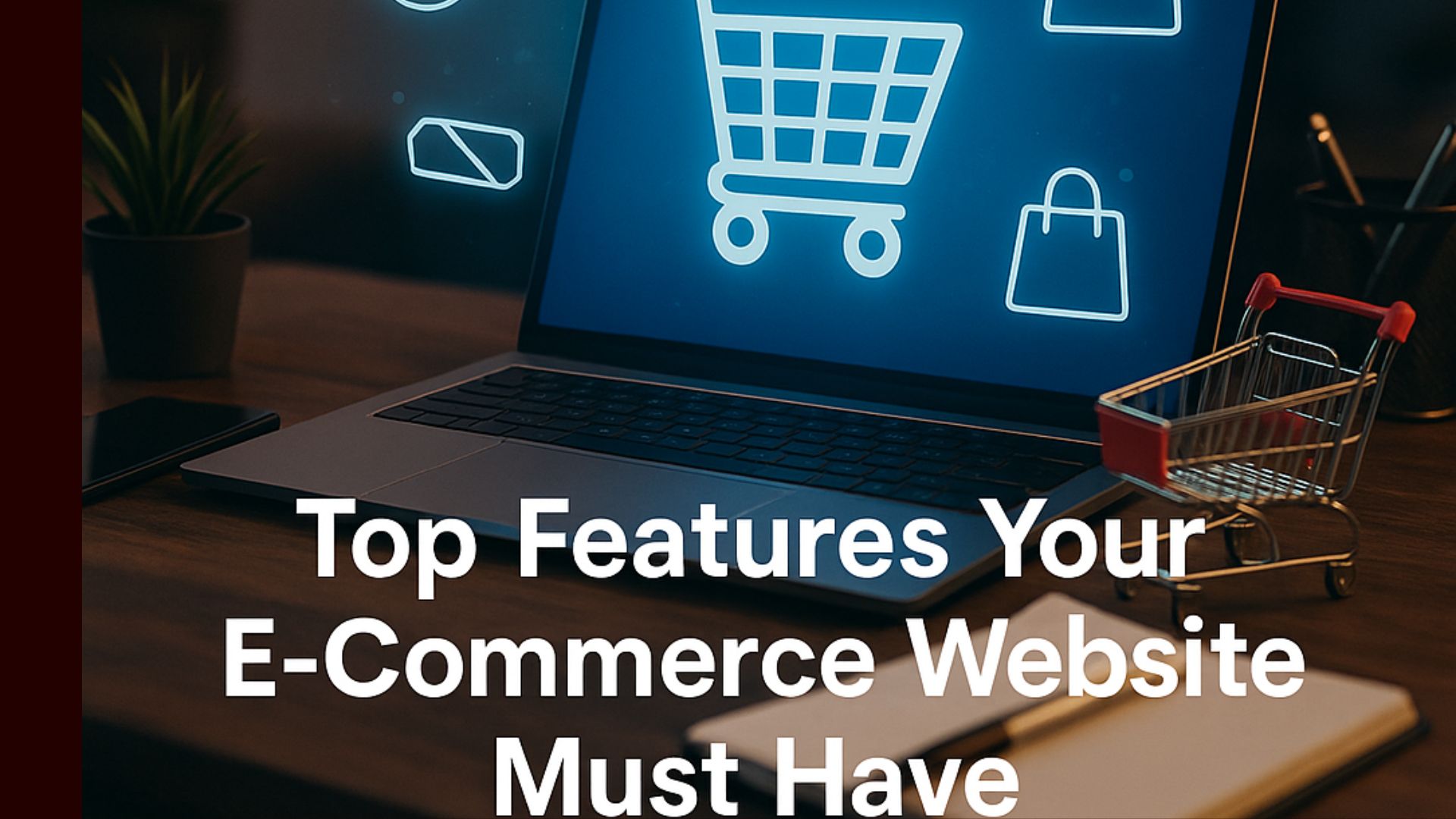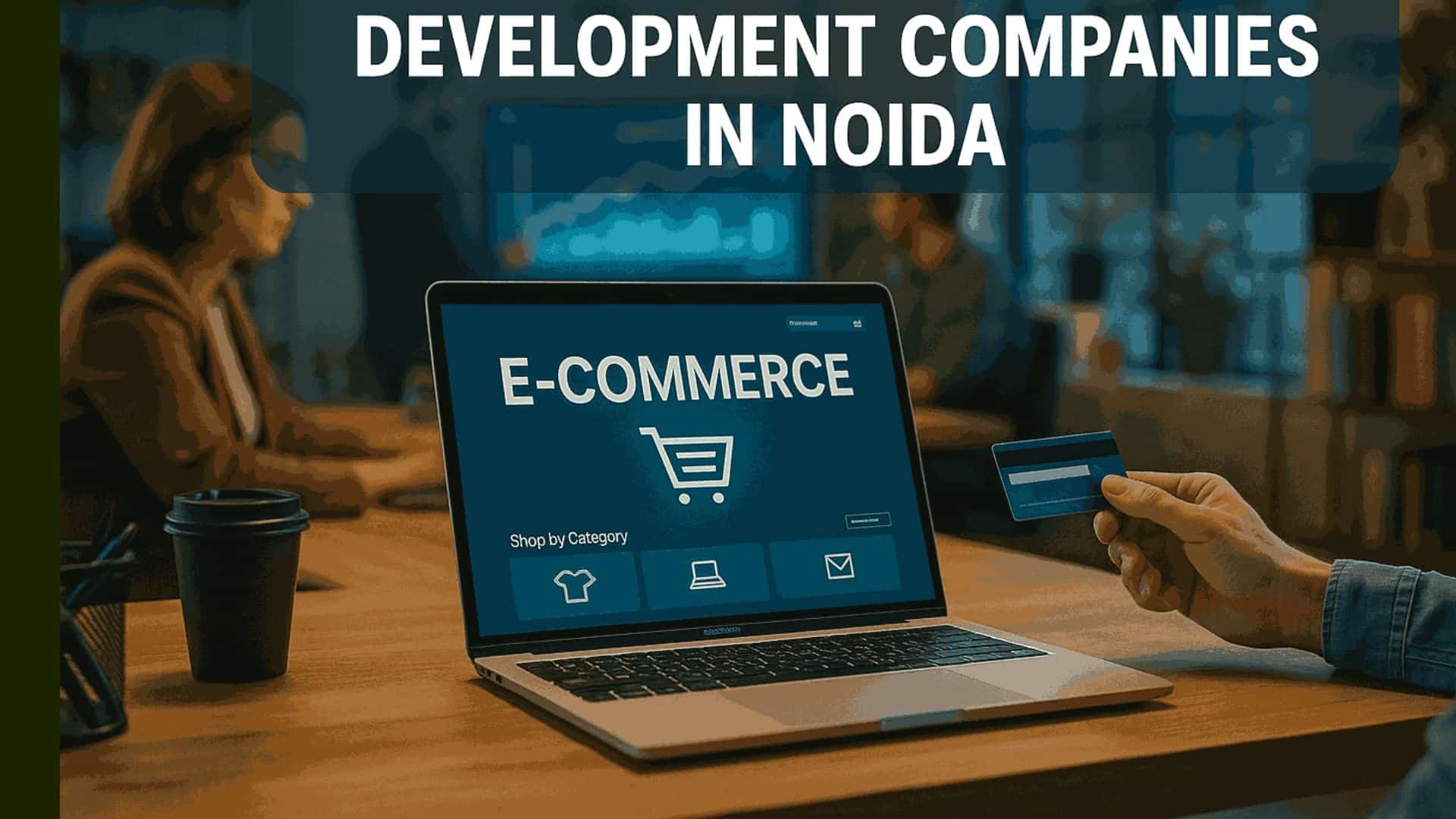E-Commerce Design Company vs DIY: Best Fit for You
A well-planned e-commerce website design is the foundation of online success, helping businesses attract customers, build trust, and increase sales. The way your site looks and functions directly shapes the customer journey and overall growth.
When building an online store, businesses often face a choice: work with a professional e-commerce website design company or use DIY builders. Each option has its advantages, and the right choice depends on your budget, goals, and long-term vision.
Read More: How Good Website Design Boosts E-Commerce Sales
Why Ecommerce Website Design Matters
A strong e-commerce website design improves customer trust and directly impacts sales. It ensures a smooth shopping experience and supports long-term business growth.
Customer Experience & Conversions
A successful online store depends on how effectively it delivers a smooth and reliable shopping journey.
Mobile responsiveness: With most users shopping on smartphones, a mobile-friendly site ensures customers can browse and purchase without difficulty.
Page speed: A fast-loading website keeps visitors engaged, reduces cart abandonment, and improves overall search rankings.
Secure checkout process: Customers are more likely to complete purchases when they feel confident that their data and payments are safe.
Role of Custom E-commerce Website
Choosing a custom e-commerce website allows your business to stand out in a crowded market. Unlike standard templates, it provides flexibility and long-term benefits.
Tailored design for branding: A custom approach ensures your website reflects your unique brand identity, making your business memorable.
Scalable architecture for growth: As your business expands, a custom site can handle larger inventories, advanced features, and higher traffic without limitations.
Read More: Smart & Affordable Websites for Small Businesses
Hiring an Ecommerce Website Design Company
For businesses aiming for long-term growth, working with an e-commerce website design company can be a strategic choice. These agencies bring expertise, proven processes, and advanced tools to create a website that is not only visually appealing but also built for performance and scalability. From user experience to backend integrations, professionals ensure your online store is future-ready.
Key Benefits
Hiring professionals offers several strong advantages for businesses:
Professional expertise: Experienced designers and developers create modern, secure, and user-friendly websites.
SEO-ready architecture: Agencies structure websites with built-in SEO best practices to improve visibility on search engines.
Ongoing support & maintenance: Continuous monitoring and updates ensure smooth performance over time.
Advanced integrations (CRM, ERP, analytics): Professionals can integrate essential business tools, streamlining operations and reporting.
Possible Drawbacks
While highly effective, this option comes with certain challenges:
Higher upfront costs: A custom e-commerce website requires a larger initial investment than DIY builders.
Longer development timeline: Professional design and development take time due to detailed planning and testing.
Read More: The Best Website Development Company in India, Delhi, NCR
DIY Website Builders for E-commerce
For startups and small businesses, DIY website builders can be an attractive option. Platforms like Shopify, Wix, or WooCommerce allow you to create an online store without deep technical knowledge. They are cost-effective, easy to use, and provide quick results for businesses that need to go online fast.
Benefits
DIY builders are designed for convenience and affordability, making them popular among new entrepreneurs.
Low initial cost: Affordable subscription plans make it easier for businesses with tight budgets to launch an e-commerce store.
Easy drag-and-drop design: User-friendly interfaces allow you to design pages without coding or professional help.
Fast setup for small businesses: With ready-made templates, you can set up an online store within days instead of months.
Limitations
While useful for beginners, DIY builders have limitations that can affect long-term growth.
Limited customization: Templates restrict creativity, making it difficult to create a unique brand experience.
Scaling challenges: As your business grows, DIY platforms may not support advanced features or larger product catalogs.
Hidden costs for add-ons: Extra charges for plugins, hosting, or advanced tools can make the total cost higher than expected.
Side-by-Side Comparison
When deciding between a professional e-commerce website design company and a DIY builder, it helps to look at the differences in features. Each option comes with its own strengths and limitations, and understanding them will make your choice easier.
Features Comparison
This comparison shows that agencies provide depth, flexibility, and scalability, while DIY builders focus on affordability and ease of setup.
Read More: Best Ecommerce Website Development Company In India
Cost Analysis
Cost is often the deciding factor when choosing between a professional e-commerce website design company and a DIY builder. While DIY platforms look cheaper at first glance, long-term expenses and limitations can shift the balance. A clear cost breakdown helps you see where the real value lies.
Cost Analysis
While agencies require a larger upfront investment, they deliver long-term stability and fewer hidden costs. DIY builders may seem affordable but often demand extra spending on upgrades, plugins, and third-party tools.
Best Fit by Business Size
Every business has unique needs, and the right choice between a DIY builder and a professional e-commerce website design company often depends on your stage of growth. Matching your business type to the right solution ensures you invest wisely.
Best Fit by Business Size
Startups often benefit from low-cost DIY builders, while SMEs usually need a scalable custom site. Larger enterprises, on the other hand, gain the most from professional agencies with full support and integration capabilities.
Read More: Real Estate Website Portal Development
How to Choose the Right Option for Your Business
Assess budget and timeline: If you have limited funds and need to launch quickly, DIY builders are ideal. For businesses with more budget and patience, hiring a design company ensures a stronger foundation.
Define long-term scalability needs: Consider where you see your business in the next 3–5 years. If you expect rapid growth and require advanced integrations, a custom e-commerce website will serve you better.
Evaluate technical expertise in-house: If you or your team lack technical knowledge, relying on professionals reduces risks and ensures smoother operations. On the other hand, if you are comfortable with basic website management, DIY builders can be manageable.
By weighing these factors, businesses can make a clear, informed choice that supports both short-term goals and long-term success.
Local & GEO Optimization: Why Location Matters
Finding the best e-commerce website design company in [City/Region]: Searching for agencies near your location ensures you connect with professionals who understand the local business environment. This makes it easier to align your website design with regional customer preferences and SEO strategies.
Local agencies offer better support and customization aligned with your market: A nearby team can provide face-to-face consultations, faster support, and tailor-made solutions that match your target audience’s behavior, making your online store more effective in attracting local customers.
Adding GEO-targeted keywords such as “best e-commerce website design company in Delhi” or “e-commerce website design services in Noida” can also improve your website’s search visibility within your region.
Read More: Online Grocery Portal Development Company
Final Thoughts
There is no one-size-fits-all solution in e-commerce website design.
DIY builders work best for startups and entrepreneurs with limited budgets and quick launch needs.
A custom e-commerce website built by professional agencies is ideal for growing or established businesses that need scalability, advanced features, and long-term support.
The right choice depends on your business goals, budget, and growth strategy.
Conclusion
Choosing between a professional e-commerce website design company and a DIY builder comes down to your business needs, resources, and long-term vision.
DIY platforms are a smart choice for startups that want to launch quickly with minimal investment, while agencies provide the expertise and scalability required for sustainable growth. By weighing your budget, technical skills, and future goals, you can make the decision that sets your online store up for success.
Ready to build a store that grows with your business? Connect with the best e-commerce website design company in Delhi NCR today.
Frequently Asked Questions About Ecommerce Website Design Companies vs. DIY Builders
Q1. What is the difference between a custom e-commerce website and a DIY site?
A custom e-commerce website is built by professionals with tailored design, scalability, and advanced features. A DIY site uses templates with limited customization and is best for beginners.
Q2. How much does professional e-commerce website design cost in India?
The cost generally ranges from 50,000 to 2,00,000+ depending on features, design complexity, and integrations.
Q3. Can DIY builders handle payment gateways and security?
Yes, most DIY platforms support basic payment gateways and SSL security, but advanced security features usually require professional setup.
Q4. Which is better for SEO—DIY or a design company?
A design company provides SEO-ready architecture, custom optimization, and better long-term results. DIY platforms offer only basic SEO tools.
Q5. How long does it take to build a professional e-commerce site?
Depending on complexity, it can take 4–12 weeks for a fully customized professional e-commerce website.
Q6. Are website builders good for long-term growth?
Website builders are good for startups but can struggle with scaling, large inventories, and advanced features as your business expands.
Q7. Do e-commerce website design companies provide post-launch support?
Yes, most agencies offer ongoing support, maintenance, and updates to keep your website secure and optimized.
Q8. Can I migrate from a DIY builder to a custom site later?
Yes, but migration can involve additional costs and time. It’s possible to move products and data to a custom e-commerce website when your business grows.
Q9. Which option is best for small businesses on a tight budget?
DIY builders are the best fit for small businesses and freelancers who want a quick, cost-effective online presence.
Q10. How do I choose the right e-commerce website design company near me?
Look for experience, portfolio quality, client reviews, pricing transparency, and local presence in your city or region to ensure better support and customization.





